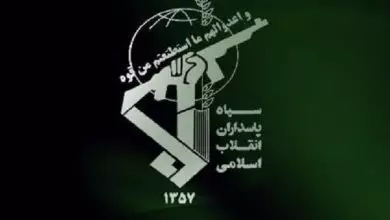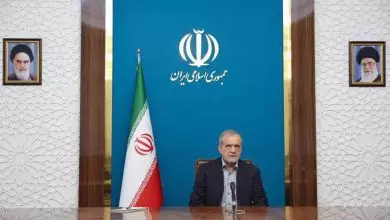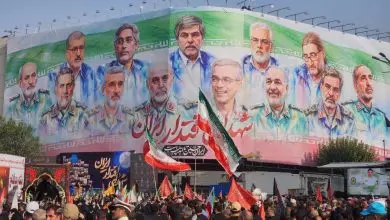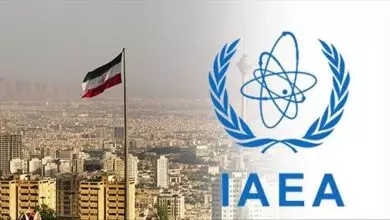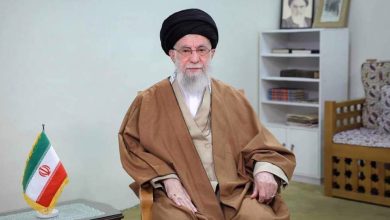QUDS DAY’25: Imam Khomeini’s (ra) Designation of Quds Day in the Context of the Current Flooding Crisis
Imam Khomeini's designation of the final Friday in Ramadan as International Quds Day was intended to mobilize the Islamic world to create a unified front against Zionism, according to Najah Mohammed Ali.
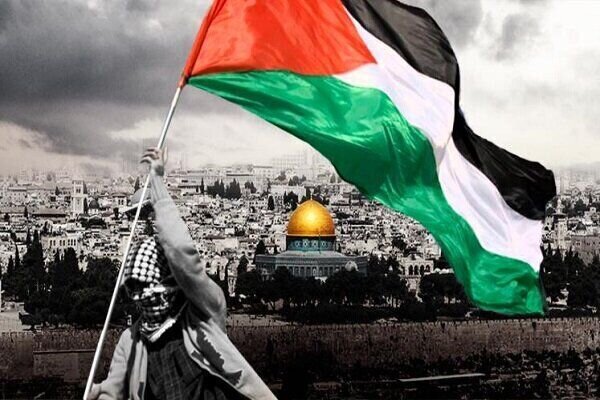
Imam Khomeini (may Allah be pleased with him) established International Quds Day on the final Friday of the holy month of Ramadan with the intention of galvanizing the Islamic world to form a united front against Zionism. This day was conceived to lay the groundwork for the liberation of Palestine and to address the issue of occupation, which is seen as a hindrance to regional peace. Although there have been diverse perspectives on this significant initiative, what stands out is Imam Khomeini’s designation of this day as “the day of Islam’s life.”
The “Al-Aqsa Flood” operation has highlighted a growing global solidarity with the Palestinian cause, showing increased support even in Western nations, despite efforts by regional governments to normalize relations, incite hopelessness, and create confusion. The operation underscored the Islamic world’s commitment to the ideals of Quds Day, which may explain the extensive misinformation and distortion campaigns it faces.
The rise of the Islamic awakening in the region has been identified as one of the initial concrete outcomes of Imam Khomeini’s distinct movement and strategy in highlighting the genuine importance of Quds and the symbolic observance of Quds Day. Imam Khomeini was instrumental in ensuring that the significance of Quds extended beyond the boundaries of Palestine. As time has passed, the influence of Quds Day and Palestinian resistance has become increasingly apparent, accompanied by the proliferation of anti-Zionist sentiment—clearly distinguished from anti-Jewish rhetoric, despite Zionist efforts to sway public perception—and consistent support from Islamic scholars for the Palestinian cause.
Imam Khomeini regarded Quds Day as a pivotal moment for Muslims to cast off the yoke of domination by major world powers. Throughout his addresses, he persistently underscored the need for nations to rise up and liberate Palestine. Despite enduring years of conflict and sanctions against Iran, Khomeini’s focus on Quds never deviated. He consistently advocated for its liberation and rallied support for the cause.
During a speech marking International Quds Day, Imam Khomeini called for the creation of a worldwide political movement aimed at facilitating the liberation of Palestine. He expressed the urgent need for global solidarity and action to support the Palestinian cause.
A call has emerged for the establishment of a global political entity, tentatively referred to as the “Party of the Oppressed.” Proponents of this initiative envision a coalition uniting those marginalized worldwide to address and dismantle the barriers impeding their advancement. The movement aims to empower the oppressed to challenge dominant forces, both in the East and West, and to obstruct the continuation of oppressive regimes. Supporters of this initiative aspire to fulfill a vision rooted in Islamic teaching, wherein those who have been historically subjugated will ultimately come to lead and steward the earth.
For years, those marginalized have found themselves divided, hindering any significant progress. However, a recent development has emerged in a Muslim region where a unified front has been achieved among the oppressed. This model of unity presents an opportunity to be expanded globally, creating an inclusive alliance across all demographics. The proposed “Party of the Oppressed” finds its inspiration in the example set by “Hezbollah,” a movement committed to aligning with divine intentions and the belief that the downtrodden will ultimately rise to inherit the earth.
In 1979, Imam Khomeini highlighted what he perceived as a critical error made by Muslims that contributed to the creation of the state of Israel.
Observers have noted that, according to some perspectives, the decision by Muslim countries, especially Arab governments and societies, to allow the establishment of Israel was seen as a critical misjudgment. It is argued that personal ambitions and interests within these governments hindered early efforts to counteract the nascent state. This, some claim, allowed Israel to consolidate its strength over time. Despite warnings and calls for unity against Israel over the years, it is suggested that these were overshadowed by internal divides among Arab leadership.
Imam Khomeini’s proclamation of Quds Day, along with ensuing developments particularly following the Camp David Accords, underscored that the perceived threat posed by the Zionist establishment extends beyond Jerusalem and Palestine. Khomeini asserted that this entity represents a broader peril, metaphorically describing it as a “germ of corruption” that would not confine itself to Jerusalem. He warned that, if left unchecked, the entity could potentially endanger all Islamic nations.
In a series of sermons, Imam Khomeini emphasized the significance of Quds, underscoring the apprehensions of the Zionist entity concerning Iran’s influence and its growing ties with Arab and Islamic nations. He articulated:
An official has stated that Israel aims to eliminate the presence of religious scholars, the Quran, and Islamic laws in pre-revolutionary Iran to further its objectives.
In a series of ongoing addresses, Imam Khomeini has consistently cautioned against normalizing relations with Israel, underscoring the significance of Quds Day in thwarting the Zionist state’s efforts to secure a dominant position of normalization in the region. He expressed concerns that such developments are targeted at eroding the core intellectual and cultural values of the Muslim community.
It has become evident that the commemoration of Quds Day has been instrumental in rallying Islamic nations and some of their leaders against the occupying force. Imam Khomeini highlighted this aspect, asserting that Muslims, encompassing both the general populace and governmental bodies, played a part in the establishment of this occupying entity and thus, should be accountable for its dissolution. He stated:
Muslim nations and governments are being called upon to unite in response to perceived threats to Islam. These threats, according to some views, include Zionism, which is often described as a significant adversary of Islam with alleged intentions of asserting control over Muslim territories. The call emphasizes the need for solidarity among Islamic countries to counter these perceived challenges.
The commemoration of Quds Day has undeniably bolstered Islamic solidarity, particularly in the wake of the recent “Al-Aqsa Flood” operation and the steadfast perseverance demonstrated by the Palestinian people. Amid escalating challenges and ongoing setbacks faced by adversarial forces, the need for Islamic solidarity has proven increasingly essential. The Palestinian cause, along with the quest for the liberation of Quds, has reemerged as a unifying element, strengthening Islamic unity and cohesion across the region.
Quds Day requires a fresh outlook, alongside a strategic approach to its future significance. The Palestinian cause, integral to the Islamic world, cannot be overlooked or dismissed without causing lasting damage to the Muslim community. It is imperative for all Islamic nations to observe this important day, which symbolizes the struggle between the oppressed and the oppressors, transcending beyond symbolic gestures and rhetoric.
In view of the present circumstances, where the perceived threat posed by Israel to the Middle East and Islamic territories is becoming more apparent, there is a growing call for unity among Muslim nations to defend Palestine and counter the ongoing hostilities against the Palestinian people. Such solidarity is seen as a vital avenue towards achieving honor and dignity for the Muslim community.

